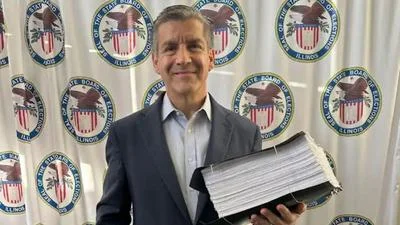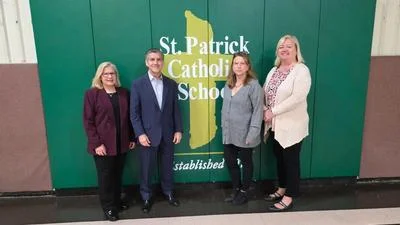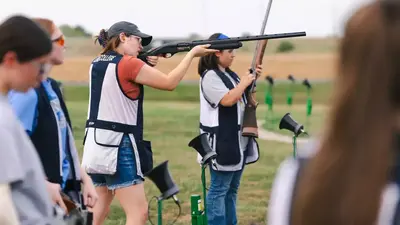Illinois' tattoo and body piercing industries would feel the sting of an expanded state sales tax under a controversial Senate budget proposal that remains under consideration in the current special legislative session.
Senate Bill 9, a Democratic budget solution that passed the Senate on May 23 but has not yet made it through the House, includes an amendment expanding the state sales tax to several new industries. It would allegedly bring in several million dollars from the piercing and tattoo industries to help cover state spending.
The Association of Professional Piercers (APP) provided an official statement on the tax plan to the Sangamon Sun.

Sen. Toi Hutchinson (D-Olympia Fields)
"The Association of Professional Piercers understands that states may see fit to tax piercing services,” a spokesperson for the group said. “With that in mind, we believe it is prudent to observe the significant financial investment many of the hard-working professionals and business owners in this industry have made, often on their own accord, so they may offer the public the best and safest experiences with body piercing. It is the sincere hope of the APP in these instances, that states would give consideration to reinvesting some of these collected taxes back in the body art community, to partner with these businesses to help promote safe practices and information for the public.”
The Sangamon Sun reached out to trade organizations representing the nationwide tattoo industry, like the Alliance of Professional Tattooists and the National Tattoo Association, but did not receive a response before press time.
The bill would supposedly bring in more $5 billion in revenues from several previously untaxed industries, including piercing and tattoo, laundry, security and alarm, storage and pest control. It also would increase the personal state income tax and corporate tax.
Proposed by Sens. Toi Hutchinson (D-Olympia Fields), Donne Trotter (D-Chicago) and Heather Steans (D-Chicago), SB9 passed the Senate on a vote of 32 to 26 vote but met a tougher fate in the House, where it lost along party lines.
Despite that, House Speaker Michael Madigan vowed that the Democrat-controlled Legislature will have a compromise budget reached by the end of June. Democrat leadership in both chambers also criticized Republican Gov. Bruce Rauner for what they called his intractable stance on the budget.
Rauner has echoed similar frustration with the Democrat leadership, calling the continuing budget impasse a major “dereliction of duty by the majority.” He has said that he will veto any budget without property tax reform.
Illinois maintains the highest combined taxation rate in the country. SB9 could increase those rates substantially, but it would become law only if all of the other measures in the Senate's grand bargain budget do as well.






 Alerts Sign-up
Alerts Sign-up